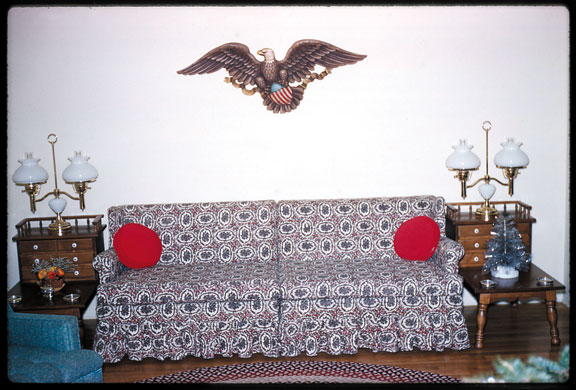The Corinthians – A Kodachrome Slideshow
The Corinthians – A Kodachrome Slideshow, edited by Ed Jones & Timothy Prus, published by The Archive of Modern Conflict, is a collection of anonymous Kodachrome slides, dated 1947-1974.
I became aware of the press through another book edited by Jones & Prus, Nein, Onkel, which is also of anonymous material, in this instance, snapshots of Nazi soldiers – material which is a bit more difficult, historically, especially in lieu of its innocuous banality and rich un-self-consciousness (the soldiers being innocuously ordinary, cute, without any distinction). As far as I know, Nein, Onkel is available in the US only through Dashwood Books, & I have never seen a copy of The Corinthians available except through the internet.
While The Corinthians does reference a specific historical conflict like Nein, Onkel, the title is taken from the book of Corinthians in the bible, a series of letters from St Paul which address a decadent society: thus the images hover between being a relic & being an ambiguous indictment. Kodachrome itself is of recent obsolescence, & like much analog film material, now represents its own historical passage in the past tense.
In terms of using the specific materiality of Kodachrome (color transparency, vivid hues with a palette akin to Technicolor)and its anonymous usage, there is Guy Stricherz’s book Americans in Kodachrome 1945-1965, which is a much gentler, nostalgic collection. & this is not to diminish the Stricherz collection, either, which has its own fascinations. The title of the Stricherz book also reveals what is often unstated about nostalgia: that nostalgia has national borders, that nostalgia can be used as a technological fantasy of a shared & cohesive history, a Family of Man in lower-case letters. My guess is the images in The Corinthians are primarily from the US, & the sometimes gaudy hues & occasions to photograph are representative of a post-WWII glee, a kind of ascendancy of an ability to observe one’s daily life, which over time detaches itself from any context & becomes cryptic. But the shared “American-ness” of the Stricherz book is not apparent in The Corinthians, where instead the images clash, they do not relate to one another, whether by year, region, practice, or taste. What is revealed can seem simultaneously obvious & opaque. What separates the collections of Stricherz and the Archive of Modern Conflict is in the choice of images & their editing. One of the remarkable things about the images in The Corinthians is that they are often uglier than beautiful. The interiors & family scenes can be claustrophobic if not downright unpleasant. This is so against the grain of the fading twilight of nostalgia, in which a partial forgetfulness is often equated w/ sweetness or tenderness, a slight regret along with a letting go – instead the images are jarring, & whether through accident or intent (the difference between we will never know), there is a crudeness, an awkward possessiveness which resonate w/ more craven aspects of the photographic process: the images force the participants into a pantomime of an image-self, as an illusion of what they would be, which is realized w/ an almost violent lack of skills. In this sense The Corinthians reminds me of the vertigo of the images in Wisconsin Death Trip. Vanitas vanitatum.
If one thinks of the billions of snapshots which exist, in utter randomness, the collection of whatever becomes the ad hoc solution to extract any sort of meaning what is otherwise accident & chance. Both The Corinthians & Nein, Onkel posit the amateur photo collection as a kind of black mirror to the past, in a Barthesian sense of lost time, & also in the excesses of detail which add strangeness & confusion to memory.
I would also recommend The Corinthians for it’s unusual binding, which reproduces the cardboard mount of a Kodachrome slide, with a window cut in both front & back. This is anterior to the content of the book, but still references the original physical form of the slides. It shows a great deal of concentration to the enterprise, & its tally of vanishing forms.



